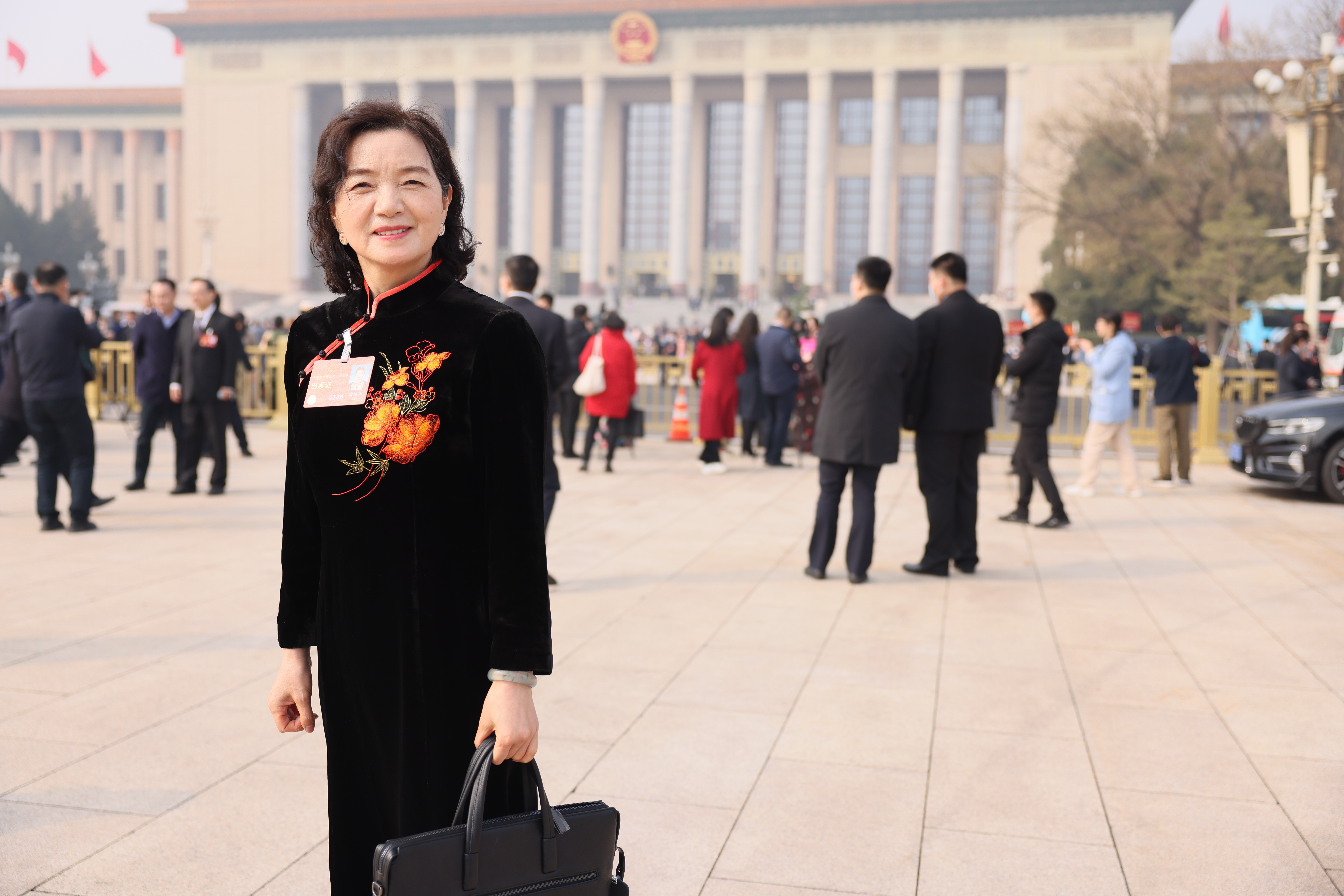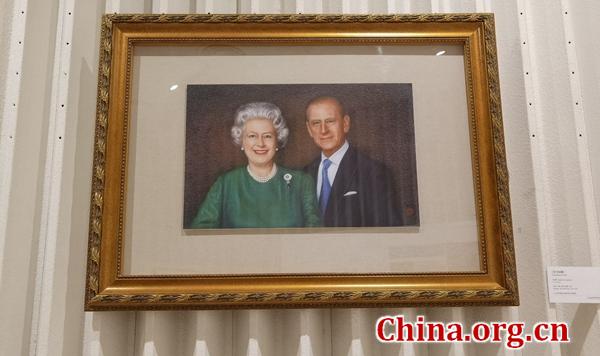NPC deputy proposes propelling innovative growth for traditional handicrafts and arts industry
- By Wang Yiming
 0 Comment(s)
0 Comment(s) Print
Print E-mail China.org.cn, March 7, 2023
E-mail China.org.cn, March 7, 2023
During the ongoing "two sessions," Yao Jianping, a deputy to the 14th National People's Congress (NPC), brought forward suggestions for accelerating the innovative development of traditional handicrafts and supporting the high-quality development of the arts and crafts industry.

Yao Jianping, an NPC deputy and a renowned Suzhou embroidery artist. [Photo provided to China.org.cn]
Suzhou embroidery, named after the city where it originated in China's Jiangsu province, is one of the most celebrated styles of Chinese silk embroidery. With more than 2,000 years of history, this form of handicraft has earned a prestigious global reputation for its use of a variety of stitches, beautiful patterns, elegant colors, and consummate craftsmanship.
Yao Jianping, a renowned Suzhou embroidery artist, is a recipient of the prestigious national-level title of "Chinese master of arts and crafts" in recognition of her outstanding contributions to the field.
For more than four decades, Yao has been ardently devoted to the cultural art of Suzhou embroidery. She has been instrumental in spearheading the formation of both the "Embroidery Art of Yao Jianping" and "Yao Silk" art brands, propelling the advancement of the art form and solidifying her reputation as an industry leader.
Yao said that traditional handicrafts had achieved remarkable success in international cultural exchange and storytelling about China, with craft products such as embroidery and ceramics being used as diplomatic gifts on numerous occasions.

A copy of Yao Jianping's embroidery displayed in the "Embroidery Art of Yao Jianping" exhibition in Suzhou, Jiangsu province, China. The original work is in the official collection of British Queen Elizabeth II. [Photo by Wang Yiming/China.org.cn]
Nevertheless, following extensive research and visits to handicraft artisans, Yao Jianping observed that the current traditional handicraft industry suffers from an incomplete and underdeveloped industrial chain, marked by a small-scale, disorganized operation primarily comprising individual businesses or small workshops.
Yao discovered that in addition to these challenges, there is also a lack of strong branding within the industry, which makes it difficult to develop on a large scale or become fully commercialized. She emphasized that the traditional handicraft industry's growth is hindered by factors such as talent shortage, inadequate funding, and a lack of technological advancements.
"Creating traditional handicraft products requires significant time, ranging from several months to several years," Yao said. "Selling these products at a good price is also a challenging task. Moreover, in the market transaction link, the 13% value-added tax rate also makes it difficult for some traditional handicraft enterprises to expand their profits and scale."
In addition, Suzhou embroidery entails a high level of technical difficulty, with new embroiderers needing to dedicate themselves to a lengthy training period. These factors discourage many young people from pursuing the craft, and there are already challenges with knowledge transfer from older to younger generations.
Yao suggested boosting the traditional handicraft industry by promoting talent cultivation, revising taxation policies, strengthening IP protection, and nurturing leading companies to advance traditional handicrafts in modern times.
She proposed to "establish a tax reform pilot program in regions where the handicraft industry is thriving, with simplified taxation method implementation," so as to foster industry growth.
Suzhou embroidery art needs to embody both social and economic values to attract more young people to inherit the craft, Yao said.
In addition, she also suggested establishing a Cultural Workers' Day in China aimed at inspiring cultural and artistic workers to preserve and perpetuate the country's rich heritage, engage in innovative endeavors, and promote the continued inheritance of China's fine traditional culture.






Go to Forum >>0 Comment(s)